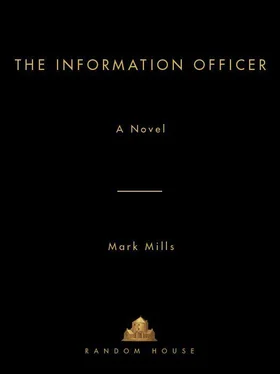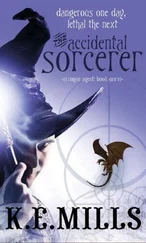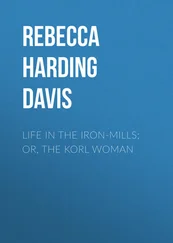Mark Mills - The Information Officer
Здесь есть возможность читать онлайн «Mark Mills - The Information Officer» — ознакомительный отрывок электронной книги совершенно бесплатно, а после прочтения отрывка купить полную версию. В некоторых случаях можно слушать аудио, скачать через торрент в формате fb2 и присутствует краткое содержание. Жанр: Старинная литература, на русском языке. Описание произведения, (предисловие) а так же отзывы посетителей доступны на портале библиотеки ЛибКат.
- Название:The Information Officer
- Автор:
- Жанр:
- Год:неизвестен
- ISBN:нет данных
- Рейтинг книги:5 / 5. Голосов: 1
-
Избранное:Добавить в избранное
- Отзывы:
-
Ваша оценка:
- 100
- 1
- 2
- 3
- 4
- 5
The Information Officer: краткое содержание, описание и аннотация
Предлагаем к чтению аннотацию, описание, краткое содержание или предисловие (зависит от того, что написал сам автор книги «The Information Officer»). Если вы не нашли необходимую информацию о книге — напишите в комментариях, мы постараемся отыскать её.
The Information Officer — читать онлайн ознакомительный отрывок
Ниже представлен текст книги, разбитый по страницам. Система сохранения места последней прочитанной страницы, позволяет с удобством читать онлайн бесплатно книгу «The Information Officer», без необходимости каждый раз заново искать на чём Вы остановились. Поставьте закладку, и сможете в любой момент перейти на страницу, на которой закончили чтение.
Интервал:
Закладка:
“Don’t count on it,” he said, swinging his legs off the bed.
His shorts were still in the hallway, but he remembered his shirt on the floor only after feeling the soft crunch of eggs underfoot.
“Bloody hell!” he snapped.
Mitzi misinterpreted the expletive. “Okay. I’ll ask Lionel for a divorce and marry you. Is that what you want to hear? Because I don’t think it is.”
He groped around for his socks and desert boots.
“Tell me I’m wrong,” she insisted.
He couldn’t, so he didn’t. He just left the bedroom with his clothes bundled beneath his arm.
Sleep was out of the question. All he could manage was a kind of limbo, a restless tug-of-war between exhaustion and wide-eyed wakefulness, a contest punctuated every half hour or so by another cigarette. He thought back to his student days and the cramped ground-floor flat in Waterloo, when anything less than nine hours of full and proper slumber would have had him snoozing happily on his drawing board come three o’clock in the afternoon.
How simple life had been back then. A morning lecture on Piranesi; half a day given over to tweaking a floor plan or an elevation; the Northern Line home from Tottenham Court Road station; three pints and a slice of pie in the King’s Arms on Roupell Street, followed by a short stagger to his front door. What had his concerns been at the time? They must have existed, but he struggled now to recall them. They certainly couldn’t hold a candle to his current predicament, he ruminated wearily.
The news that he had fathered a child—the very fact that he was capable of doing so—had touched him at some deep, primordial level that defied words. It was as if the lens through which he viewed the world had been shattered and then hastily repaired. He could make out the rough shape of things, but it was a fragmented picture, one of refractions and reflections and unexpected associations—an alien landscape where past, present, and future somehow coexisted.
He saw himself screaming at the top of his newborn lungs in the arms of his dying mother, and for the first time he saw the logic of her sacrifice. He watched it playing out before his eyes, with Mitzi standing in for his mother and the ending rewritten. Try as he might, though, he couldn’t write himself into the scene.
He wasn’t wanted at the bedside, where his father had once stood. Mitzi had made her feelings clear on that score, and he couldn’t see her changing her mind. It was easy to resent her, and more than a little unfair. There was no denying the sudden clutch of fear he’d experienced when she had tested him, confident of his reaction, proposing that she seek a divorce from Lionel and marry him. It just didn’t fit with the future he’d envisaged for himself: the architect, the man about town, looking to leave his mark on the world. He couldn’t find a place for the young child and the disgraced ex–navy wife in his dream. And he thought less of himself for it.
He tried to console himself with the alternatives. He would be the mysterious gentleman watching the Colts’ football match against the rival school, stifling his cheers as his son broke free in the dying seconds of the game to score the winning goal. That didn’t work. Lionel barged his way into the fantasy, sidling toward him along the touchline.
“Hello, old boy. What brings you here?”
“Oh, nothing much. That fine figure of a young man you have always assumed to be your son is in fact the product of a brief but passionate affair I conducted with your dear lady wife during our time on Malta.”
“Well, I say. I didn’t see that one coming.”
“Doubtless, dear fellow, but who can blame you? We were very discreet.”
Somehow all the scenarios he came up with collapsed into absurdity, leaving him lost and floundering in a future world of his own creation.
The past and present offered more of a refuge. He found himself drawing a strange kind of strength from the prospect of fatherhood. Just as his own father was the touchstone by which he tested himself, so it now fell to him to set an example, to light the path for the next generation—a mawkish sentiment, he knew, but at least it gave some small degree of comfort.
It had just passed five o’clock when he heard the knock. His first thought was of Mitzi, but she didn’t have a key to the downstairs door. His second thought was of his neighbor, the young sculptor on the floor below, the one who used to teach at the art school on Old Bakery Street and who now made a living running off devotional plaster models of the Virgin (much in demand), the neighbor who was always cadging a scrap of bread or a smear of jam. Then he remembered that the sculptor was long gone, off to stay with relatives near Zejtun, where the bombs didn’t rain down with such deadly persistence.
He dragged on his shorts and shuffled to the front door.
“Who is it?” he called.
“Busuttil.”
The name meant nothing to him until the low grumble of a voice added, “From Lilian.”
He slipped the latch and opened the door. In the darkness it was hard to make out much of Mr. Busuttil other than that he was short, was rounded in the shoulder, and appeared to have something odd on his head.
It was a straw hat, but only just. Stained and crumpled, it looked like it had been pulled from the rubble of a bombed building. This became clear once they were in the kitchen and Max had lit a candle.
Busuttil glanced around the bare room. It was hard to guess his age, hard to say whether the hat concealed a bald pate or a thick head of hair. His face had a lean hangdog look to it, as if someone had let the air out of it. His eyes, in contrast, were bright, alert, and restless.
“She said no phone, so I come instead.”
“You’re a friend of Lilian’s?” Somehow Max couldn’t see it.
“I know the brother of the cousin of her uncle.”
“And you’re a policeman?”
Max had been very clear about that with Lilian: it had to be someone who knew the ropes, someone with authority. The man in front of him didn’t appear to score highly in either department. He could hardly be held to blame for the large carbuncle on his neck, but there was something essentially disheveled about the fellow that didn’t scream “dependable upholder of the law.”
Busuttil pulled back his dusty jacket and flashed the pistol at his waist. “CID. Inspector for five years.”
Max tried to look suitably impressed.
“Do you have tea?”
“It’s the only thing I do have.”
This wasn’t entirely true. He also had a three-penny bar of chocolate he’d been holding back for a special occasion. He wasn’t sure that this qualified but produced it nonetheless. Busuttil eagerly devoured it all before the water had even come to a boil.
Max had his own contacts within the police department, men with whom he communicated every day over casualty figures, and he was beginning to wish he’d taken the risk and gone with one of them. He started to feel more comfortable only when the tea had brewed and they were sitting at the table.
“I see your eyes,” said Busuttil. “I see you are not happy. So before I ask questions, I tell you about Busuttil.” He paused to take a sip of tea. “I was born 1901 in a small house near Siggiewi. My father, he was a farmer of corn. There were also goats, six goats …”
Oh Christ , thought Max, he’s going to tell me their names .
Without warning, Busuttil erupted in laughter, gripping Max’s forearm as he did so. The laughter accounted for the long furrows flanking his mouth.
“Your face!” Busuttil gasped. Once he’d recovered enough to risk another sip of tea, he added, “It is good for my work that people see me like you see me.”
Читать дальшеИнтервал:
Закладка:
Похожие книги на «The Information Officer»
Представляем Вашему вниманию похожие книги на «The Information Officer» списком для выбора. Мы отобрали схожую по названию и смыслу литературу в надежде предоставить читателям больше вариантов отыскать новые, интересные, ещё непрочитанные произведения.
Обсуждение, отзывы о книге «The Information Officer» и просто собственные мнения читателей. Оставьте ваши комментарии, напишите, что Вы думаете о произведении, его смысле или главных героях. Укажите что конкретно понравилось, а что нет, и почему Вы так считаете.










